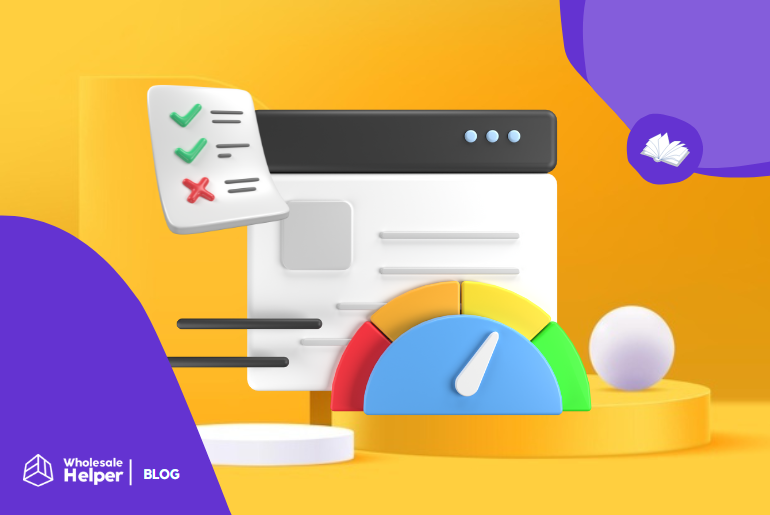Conducting periodic testing for an online store is a crucial part of any e-commerce business that wants to ensure reliability and high performance.
If you’re running your store on the Shopify platform, there are many scenarios you need to consider before planning a test, such as :
- Scope of the testing
- The parameters involved
- Expected output/ test results.
Shopify testing is important since it helps to minimize potential errors and flaws in any Shopify store. It further helps with ensuring maximum uptime of your store for your customers so that they can easily purchase products (without facing any issues).
- What is Shopify Testing?
- Why is Shopify Testing important?
- What are the different approaches to Shopify Testing?
- What is Automated testing?
- Why is it important to automate Shopify Testing?
- What are the Benefits of Automating Tests?
- Test cases for Shopify Testing (Store’s Functionality)
- How is Shopify testing conducted (manually)?
- How To Automate Shopify Testing?
- Best Automated Shopify Testing Tools
- How Store Watchers help you with automated Shopify testing?
- Conclusion
In this article, we will discuss everything about Shopify testing, including its types and automation aspects. We will also cover different approaches to Shopify testing and how to automate it using procedures and tools.
So, let’s dig in!
What is Shopify Testing?
Shopify testing is a type of testing carried out by Shopify experts, store owners, developers, etc., on a Shopify store in order to test and make sure all the components of that store are working as expected.
Why is Shopify Testing important?
Shopify testing is an important step in ensuring the stability and reliability of any Shopify store. As a vital part of e-commerce testing, it helps identify potential errors or flaws in the store that could lead to downtime or poor customer experiences.
Issues in the store typically lead to potential issues with the cash register.
Hence, it is important to do periodic checks of your Shopify store by conducting testing for all the store’s components.
We recommend that it be carried out on the following occasions:
- When you make a change to your store, like a customization
- Theme change
- Adding a new 3rd party app
- Before a big sale or a campaign goes live
What are the different approaches to Shopify Testing?
1. Functionality Tests
This type of testing looks at how well the store functions in terms of its core features, such as checkout, product search, and payment processing. It also checks for any potential bugs or errors present in the store’s functions.
Since functionality tests focus on validating what the system does rather than how it works internally, they often rely on principles similar to black-box methods, so reviewing a short guide to black box testing or even comparative resources on exploratory testing can help teams structure clearer test scenarios without needing access to the underlying code.
2. User Interface Tests
This type of testing is used to test the interface of a Shopify store for any faults or errors that might be present. This includes checking for things such as page responsiveness, page load time,s and other similar aspects.
3. Security Tests
This type of testing helps to make sure that the store is secure from any potential data breaches or attacks by hackers. It involves testing security protocols and other aspects related to security.
4. Performance Tests
This type of testing checks how well the store performs under various conditions and loads, for example, at peak periods when there are large numbers of users visiting the site at once, a very large number of products added to the shopping cart, and similar situations.
5. Automation Tests
Automation tests are used to test a Shopify store in a more automated manner. This involves the use of scripts and tools or a dedicated Shopify automated testing solution to carry out testing tasks on a periodic basis.
Read Also:
- Automating Wholesale Invoicing and Payment Reminders On Shopify Store in 2025
- Shopify Wholesale – All You Need to Know
What is Automated testing?
Automated testing involves the use of automated scripts or tools to carry out periodic tests on a Shopify store. This can help reduce manual testing efforts and ensure that all aspects of a store’s functionality are tested regularly without having to manually go through each test every time.
Automated testing can be used for performance testing, security testing, user interface testing, functionality testing, etc.
Why is it important to automate Shopify Testing?
Automating Shopify testing can be an invaluable asset for e-commerce stores as it helps ensure that the store runs flawlessly at all times.
Automation tests run in an automated manner with minimal effort required from developers or tech professionals. This helps save time and effort in manually running tests each time there are any changes made to the store, further helping keep costs down by reducing labor costs associated with manual testing, such as hiring QA engineers can be expensive.
What are the Benefits of Automating Tests?
- Saves time, money, and effort.
- More consistent than manual tests since they provide repeatable results without any human intervention.
- Helps to ensure that all the features & components of a Shopify store operate as expected.
- Allows developers & testers to quickly detect any issues in the store and fix them swiftly before they can cause disruption for customers.
Test cases for Shopify Testing (Store’s Functionality)
and more…
Real-life examples of issues facing my Shopify merchants:
1. Add-to-cart is not working in the Shopify store
Image source: Twitter (Glorious)
2. Checkout is not working in the Shopify store
Image source: Twitter (Dubby)
Image source: Twitter (Leighton Taylor)
How is Shopify testing conducted (manually)?
Manually conducting Shopify testing involves a lot of manual effort, including running tests on each individual feature and component.
This means that testers would have to go through the entire store and manually test everything in order to identify any errors or issues present. It’s time-consuming and often tedious work, but it can be necessary for ensuring that all components of the store are working properly.
Manual testing also requires a great deal of technical knowledge, as testers must be able to interpret results and diagnose any problems they find. Furthermore, manually running tests increases the chance of human error, which could lead to false positives or missed issues.
How To Automate Shopify Testing?
Automating your Shopify testing process helps you save time and effort while ensuring the proper functioning of your store.
To automate Shopify testing, there are several tools available like Selenium, Cypress.io, etc., which can be used to perform automated testing tasks such as UI tests, performance tests, security tests, etc., on various browsers & devices.
Also, there are many other SaaS solutions available in the market that will allow you to automate testing on your Shopify store.
Best Automated Shopify Testing Tools
- Lambdatest – For UI and browser compatibility testing)
- Pingdom, Google PageSpeed Insights, GTMetrix – For performance & speed testing
- SiteCheck – For Security Testing/Scanning
Conclusion
Shopify Testing is an important aspect for any e-commerce business running on Shopify and automation plays a crucial role in it. Automation helps to ensure that your store runs efficiently and prevents potential issues from occurring. It also allows developers/testers to focus on other aspects of the store at hand with improved accuracy, scalability, and faster results. Automating Shopify testing should be considered for every e-commerce business running on the Shopify platform for a better success rate of their stores.
The best stores test early and often. Are you?
Ready to impress your B2B customers? Start wholesaling like a pro! 🙂
Try our Wholesale Pricing Discount app for free !
Frequently Asked Questions
Why is Shopify testing essential for my online store?
Shopify testing is crucial because it checks your store for any errors or problems that might stop customers from buying your products. Regular testing helps keep your store running smoothly, making sure customers have a good shopping experience.
How often should Shopify app testing be done?
You should test your Shopify apps every time you add a new one or update an existing one. It’s also a good idea to test before big sales or events to make sure everything works right and doesn’t turn away customers.
Why automate Shopify website testing
Automating your testing saves you a lot of time because it does the tests for you. This means you can test more often without spending extra money or needing more people to do the work.
Can automated tests do everything a Shopify website tester does?
Automated tests can do a lot, but sometimes you still need a person to check things out. People can spot problems that automated tests might miss, especially when it comes to how easy and fun your store is to use.
How do functionality tests help my Shopify store?
Functionality tests make sure that important parts of your store, like the checkout or product search, work right. This is key to making sure customers can buy what they want without any hassle.




![Shopify B2B: Build All-in-One B2B Store [2026 Guide] Shopify B2B article featured image](https://wholesalehelper.io/blog/wp-content/uploads/2023/04/Shopify-B2B.png)




1 Comment
Ӏ like the valuable information you ρrovide in your articles.
I’ll boⲟkmark your weblog and check again here frequently.
I’m quite sure I’ll learn plenty of new stuff right here!
Best of luck for the next!